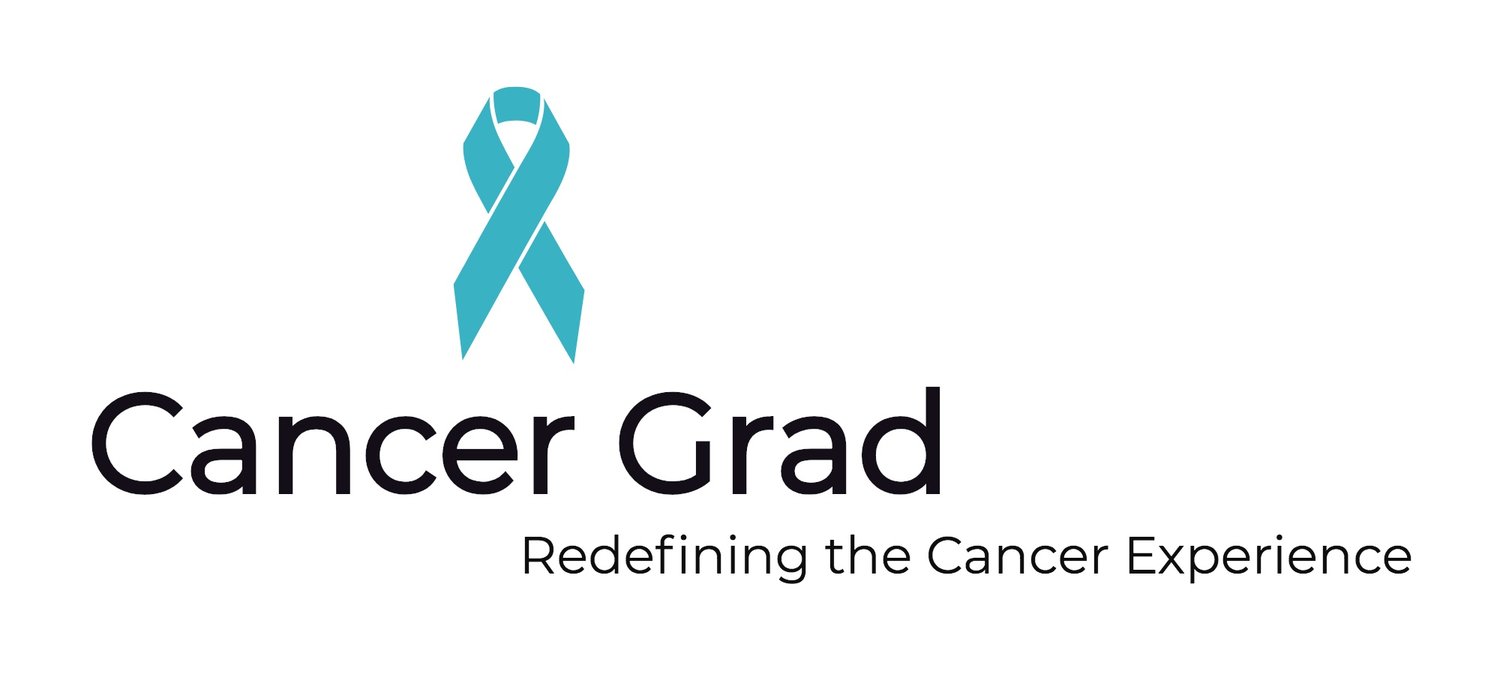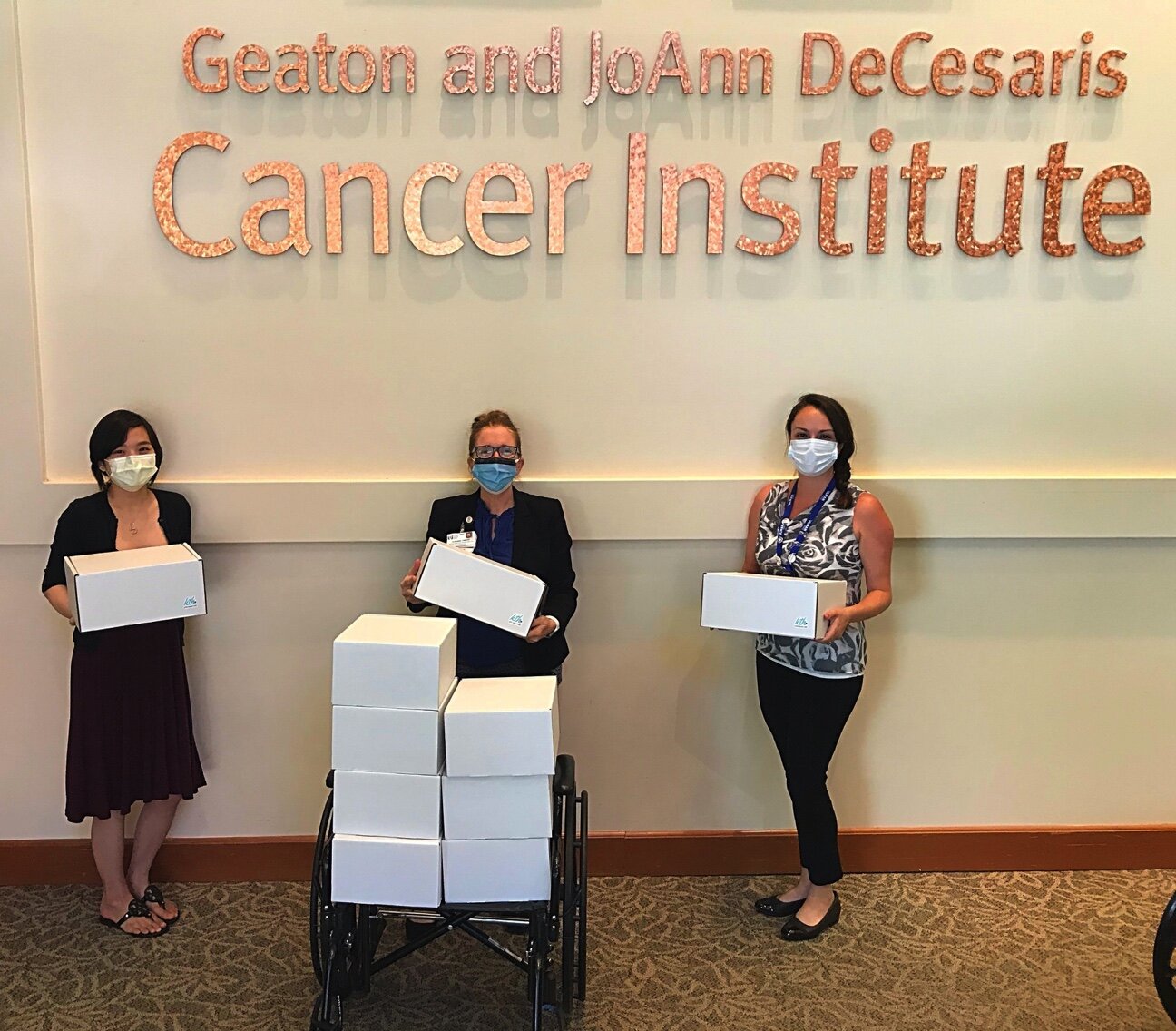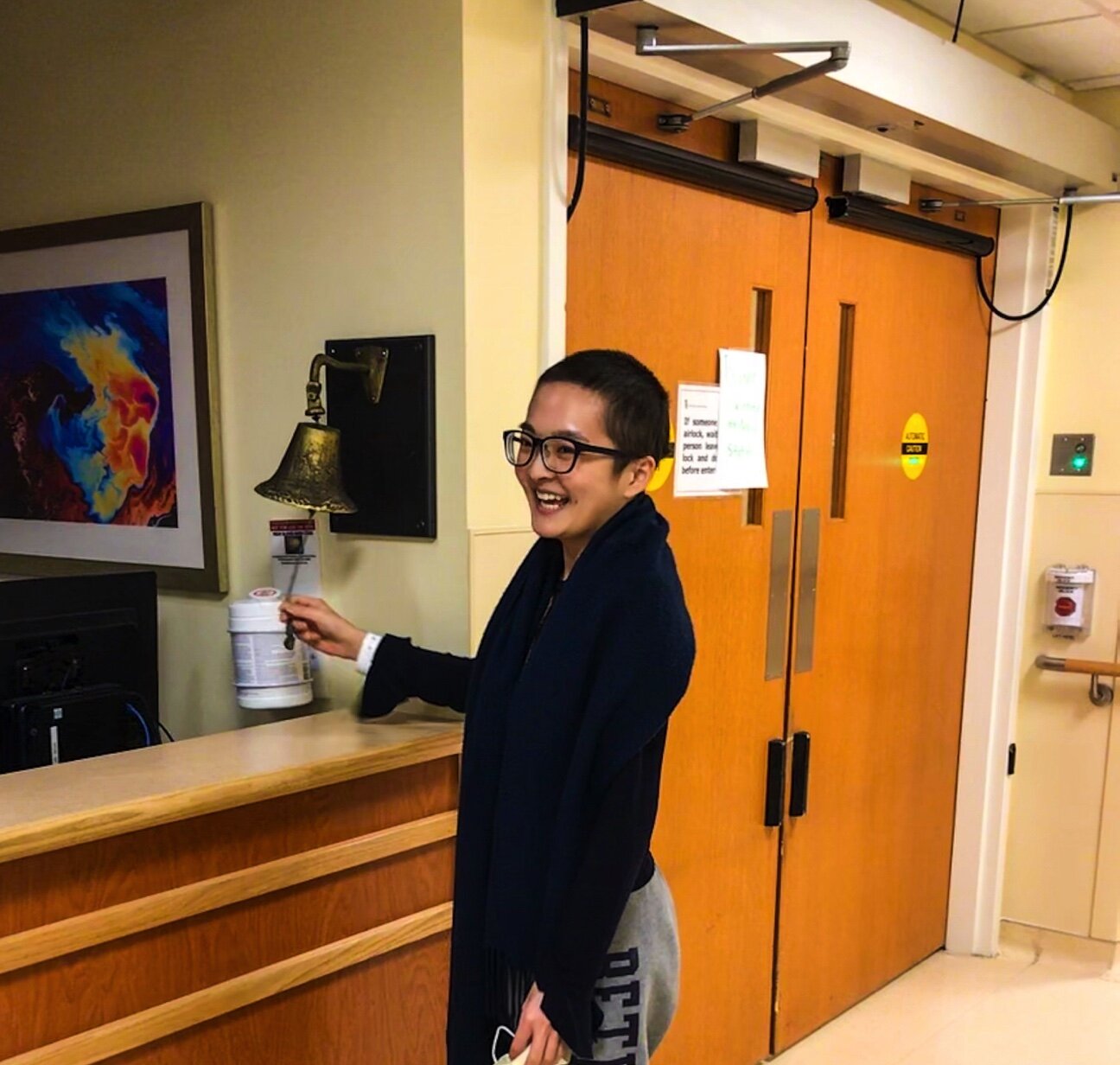Non-Hodgkins Lymphoma Grad- Sonia
“The fact that you’re reading this means you’re taking initiative to seek out stories and communities. I would say join as many support groups as you can, because there are just some questions your medical team won’t or can’t answer. ”
Name: Sonia Su
Age at Enrollment: 24
Major: Non-Hodgkin’s lymphoma. Subtypes: Diffuse large B-cell lymphoma; Primary mediastinal large B-cell lymphoma (PMBL)
What were the primary symptoms you experienced prior to diagnosis?
Because the tumor was located in my chest, I first started feeling chest pain, which was misdiagnosed as costochondritis (would you believe another PMBL patient received the same misdiagnosis?). I experienced slight shortness of breath and then superior vena cava syndrome (SVCS), which made my face swell. Then within a month of supposedly being in remission, I had persistent dry cough for months, which led to headaches and SVCS. At last, I could hardly walk a few steps without feeling exhausted, before being admitted for salvage chemotherapy.
What symptom(s) lead you to go to the doctor?
Worsening chest pain led to an X-ray and blood tests at urgent care. Then I had some hospital consultations and ultimately a biopsy and PET scan. My swollen face from SVCS was what led my amazing mother to fax all nearby hospitals about my case, soon after which I was admitted with a plan to start chemotherapy.
Courses Completed:
R-CHOP and R-ICE chemotherapy regiments, one light dose of radiation and conditioning chemotherapy before CAR-T immunotherapy.
How did you respond when you heard the words “You have cancer”?
I think people tend to have this idea that hearing those words will suddenly mean the end of the world. And at 24, it’s especially difficult to believe, let alone understand. But I don’t recall saying much, because it was something I had to take time to process. My mother—who ended up accompanying me to every single hospital visit afterward, along with my dad—and I were seeing a surgical doctor who had intended to “simply” remove the tumor, assuming it was benign. So being told that I needed to see an oncologist for what ended up being a malignant tumor required some mental hula hoops that both my mother and I just couldn’t so readily accept. Once it sunk in, though, I turned to my blog and started recording my cAnCeR jOuRnEy (shoutout to @thecancerpatient on Instagram).
What has been your hardest moment(s) since your diagnosis? How have you moved forward through them?
The absolute worst and best day was Day 0, when I received my CAR-T cells in March 2019. It was the worst, because the two prior days of conditioning chemo had left me absolutely drained. Getting out of bed that morning, I had zero appetite, zero energy, and zero hope. I remember feeling just mentally and physically drained. Upon being admitted, however, I saw a care package left by a former patient. Something about the note that she left, along with the snacks and other goodies, revitalized me. I suddenly felt myself starting to regain strength. Then when the mutant T-cells, which had been re-engineered in a lab in California to kill my cancer cells, were being infused back into me, it was literally giving me a new life. On the outside, it was entirely uneventful—imagine any ol’ blood infusion or draw. But there was also a medical student who stayed to observe and chat with me through it, and I think that distraction with the care package both allowed me to see that life would keep going. I would keep going.
The next hardest moment would probably be on my birthday a few days later, when the side effects of those T-cells landed me in the ICU for two days. What a way to celebrate, huh?
What has been your biggest accomplishment since your diagnosis?
I would say completing graduate school during a global pandemic, while founding a nonprofit that helps others affected by cancer. Kits to Heart distributes thoughtfully designed, curated cancer care kits at hospitals and cancer centers in the Baltimore/Washington Metro Area community, as well as shipping directly to patients nationwide. I’ve used my experiences and interactions with patients and social workers to pack the kits with informational resources and comforting products compatible with various cancer treatments. Just like receiving a care package from a survivor gave me hope and inspiration to pay it forward, we can inspire hope at the most difficult moments of treatments.
What do you believe are the unmet needs of young adult patients within the cancer community?
There are so many! No one mentioned fertility preservation until I had relapsed. I think just having social workers and patient navigators who know how to address and give appropriate resources to the AYA cancer population is essential. We need resources that often don’t align completely with older patients.
What advice would you give to someone who is newly diagnosed? What advice would you tell them to ignore? What advice would you give to the caregivers?
The fact that you’re reading this means you’re taking initiative to seek out stories and communities. I would say join as many support groups as you can, because there are just some questions your medical team won’t or can’t answer. Check out all the amazing organizations that offer free or low-cost services to help you out financially, mentally, and physically—such as Triage Cancer, Lacuna Loft, Elephants and Tea, and more. I find that the more involved you are with people who understand and want to help you, the less you feel alone or helpless.
You likely will encounter some people promoting alternative medicine, essential oils, magic cure-all vitamins, and other questionable “treatments.” Please don’t play into them.
As for caregivers, you’re superheroes. It won’t be easy, and sometimes you just have to keep some distance. But know that you are so very much appreciated.
How did your family respond?
My parents have been the best caregivers I could ever ask for. Whether it was the first time getting chemotherapy or the last, I felt way too sick to complete daily tasks, let alone drive myself to and from treatments. I relied on my parents to cook my meals and make sure I stayed hydrated. When I was hospitalized for almost two weeks for CAR-T immunotherapy, having my parents take rounds to stay with me provided both physical and psychological support. It’s almost humorous to say this, but I honestly would have lost much more weight than I did had it not been for my mom’s home-cooked meals and groceries from organic markets. Although nurses do their job, nothing compares to having your mother be by your side while you vomit for the third time on your birthday in the hospital.
When you feel overwhelmed or anxious, what do you do for relief?
I watched a ton of YouTube videos, especially mukbangs, where people just eat in front of the camera and sometimes share interesting stories. Especially when I had no appetite, those were the easiest and best videos to digest, no pun intended. I still love watching them to this day.
Do you have any new daily/weekly routines since your diagnosis? If so, what are they? How have they improved your quality of life?
I go on more walks and hikes! I have always found enjoyment in walking and taking in my surroundings, especially while abroad—but being on the verge of death multiple times tends to change your perspective on simple things like being able to take a leisurely stroll.
What did you know about the type of cancer that you were diagnosed with prior to your diagnosis?
Nothing. And that’s normal. Luckily, there are tons of resources and readings from the Leukemia and Lymphoma Society, the Lymphoma Research Foundation, and—if you’re the academic type, medical/cancer journals.
What do you now want people to be aware of?
If your loved one is diagnosed with cancer, don’t say silent. Even if you have no idea what to say or how to help, just expressing your support in whatever way you wish is better than total silence.
How did/do you find joy during this experience?
Giving kindness. It sounds corny, but I find joy by giving joy, especially to others affected by cancer.
What has your cancer experience taught you?
Not only have I become the CEO and Head of Advocacy of My Own Personal Health, but I have learned how to love and be loved. While I will always be learning, difficult times bring out the best in the people who love you and you love. The best example of this is my husband. We had met just months before I was diagnosed, and while we spent most of my cancer journey in a long-distance relationship, he’s been with me through it all and even moved around the world to be with me last year. We got married right before the pandemic. Reception TBD, thanks to a certain global situation.
What do you want your legacy to be?
The impact of Kits to Heart.
If you could write anything you wanted on a billboard in NYC’s Times Square that would reach millions of cancer patients, what would it read?
You are loved.
Check Out Sonia Online!
Please support Kits to Heart and bring smiles and solidarity to those affected by cancer. You can check us out on:








